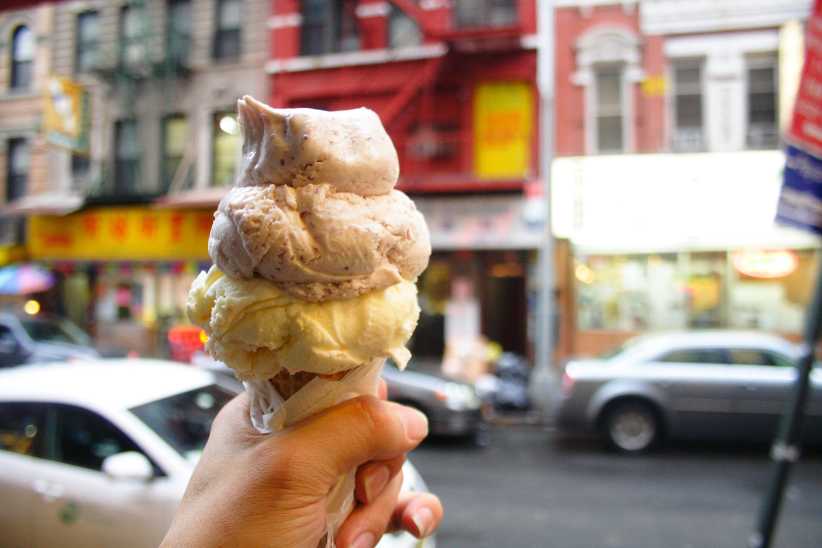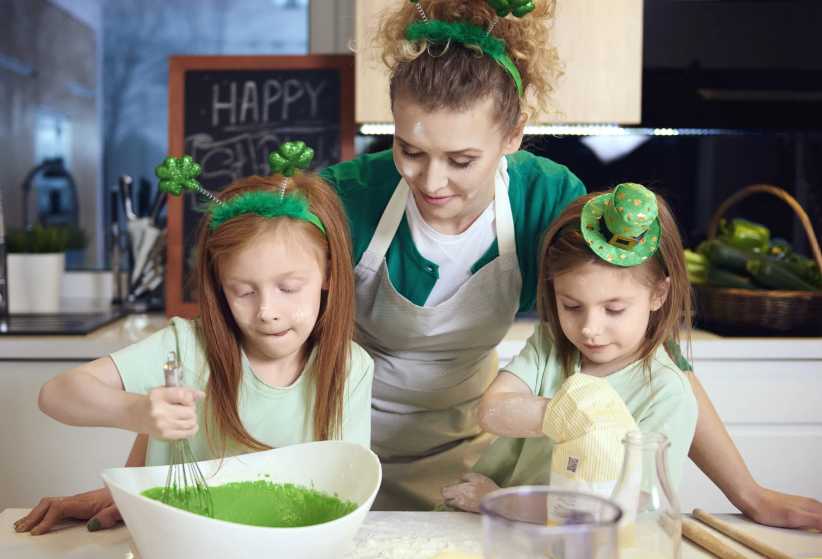Imagine growing up with a nutrition expert as your mother. The majority of your meals are nutritious, with a running commentary about how different foods affect your body. You learn how to read food labels at a young age. So-called junk food and grabbing dinners from a drive-through window are uncommon treats. But most importantly, you have a trusted role model to whom you can turn to with nutrition questions.
In honor of National Nutrition Month, I polled the children, ages 10 to 30, of five registered dietitians to get a sense of what it is (or was) like growing up in such a nutrition-conscious atmosphere.
As a whole, the sons and daughters were rather nonchalant about their mothers.
“In the back of my mind, I always knew that my mother was a dietitian, but I never thought twice about it. I didn’t realize we ate healthier than most people until I ate at my friends’ houses,” recalls a 23-year-old son.
Another dietitian’s daughter, also 23, recalled learning moderation.
“There was always candy around the house in bowls, and we had ‘junk food’ in the pantry, but we were never allowed to ‘pig-out’ on junk food.”
The positives: on the whole, selecting balanced meals with plenty of fruits and vegetables was second nature.
“I learned how to eat healthy without thinking about it. Picking nutritious food, whether I’m at the grocery store with my roommates or going out to eat with a friend, is now second nature,” stated a 23-year-old daughter. “Seeing people struggle — trying to determine what is healthy or not — has made me grateful that my mother instilled healthy habits in me at a very early age.”
The negatives: what kids eat can affect how their friends act toward them.
One girl said she “didn’t have any ‘good’ food to trade at the lunch table in grade school.”
And a young man recalls, “Try being a 10-year-old boy telling your friends that your mother wants to hand out raisins for Halloween. See how quickly your friends give you the look of death.”
Kids say the darndest things. A 10-year-old son has already learned a lot about eating, although he’s not completely happy about it.
“My house doesn’t have as much junk food compared to my friends. I don’t always get to eat what I want.” Yet, he reports, “I feel more healthy. I have learned how to be smarter about what I eat.”
One adult son mentioned what his friends thought of his eating habits.
“It definitely made things a little different food-wise, with respect to what my friends would talk about eating. My stories involved more references to vegetables, fruits, and non-fried meats than any other guy I knew. More than once, I remember being asked something like: ‘Wait, you had to eat an apple and broccoli?’ ”
More than one child recommends following mom’s advice.
“Regardless of occupation status, a mother always knows best. So if your mom is an RD, then you’d really better listen closely,” advises a 19-year-old son.
An eighth-grade girl agreed.
“My suggestion is to just go along with what they have to say about food and nutrition, because they are always right.”
All moms are prime influences. As you can see, the apple doesn’t fall far from the tree when it comes to making smart eating choices. Yet, all adult role models have a major impact on their young offspring. Research suggests mothers who purchase nourishing foods and who don’t keep many treats at home rear children who are more likely to express healthy eating-related attitudes.
A new college graduate has the following sage advice applicable for all children.
“I would try to learn as much as possible about cooking healthy things. Take advantage of the time that you have at home for your mom to cook good, healthy things for you, because it isn’t always easy to do on your own.”
Those quoted are the children of the following registered dietitians: Karen Ferrantella, Dietetic Practice Group Manager, Academy of Nutrition and Dietetics; Kerry Hollar, Naperville, Ill; Julie Moreschi, Dietetic Internship Director, Benedictine University, Lisle, Ill; Lois Moss-Barnwell, President, Diet Rx, Ltd; Toby Smithson, spokesperson for the Academy of Nutrition and Dietetics and founder of DiabetesEveryDay.com.
The three grown children of Christine Palumbo, RD, are nutrition whizzes, find grocery shopping and cooking fun, and simply love everything “food.” Follow her on Facebook at Christine Palumbo Nutrition, or on Twitter at @PalumboRD. Her website is ChristinePalumbo.com.
Wild Blueberry and Honey Smoothie
Makes approximately three (12 ounce) servings
INGREDIENTS:
1 cup frozen wild blueberries
1 ripe banana, peeled and cut into pieces
1 cup vanilla yogurt
1 tablespoon honey (more if desired)
1/2 cup orange juice
Mint leaves for garnish
DIRECTIONS: Place all ingredients in blender and mix until creamy. If too thick, add small amounts of juice or milk until desired consistency.
Tip: Vary smoothie ingredients for added protein and vitamins. Try silken firm tofu, protein powder, a sprinkle of wheat germ or flax seed, or a variety of 100-percent fruit juices.
NUTRITION FACTS: 162 calories, 1g fat, 47mg sodium, 36g carbohydrates, 3g fiber, 4g protein.
Recipe from WildBlueberries.com.






















